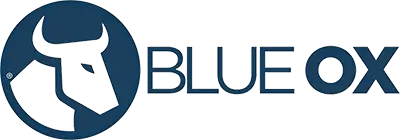Blue Ox Towing Guide: Chapter 2
CHAPTER 2: EQUIPMENT YOU'LL NEED FOR STANDARD TRAILER TOWING
BLUE OX TOWING GUIDE
Equipment You’ll Need For Standard Trailer Towing
Whether you are towing a small utility trailer, a boat trailer, or a flatbed trailer, there are a handful of essential pieces of equipment you will need to get the job done right.
Trailer Weights
Knowing your trailer weight is an important part of towing. It will help you determine how much cargo you can haul on your trailer based on the towing capacity of your vehicle. The weight of your trailer can be found on the VIN sticker. Most VIN stickers are located on the frame of your trailer on the driver’s side or on the trailer tongue. It will be listed as the GVWR (gross vehicle weight rating).
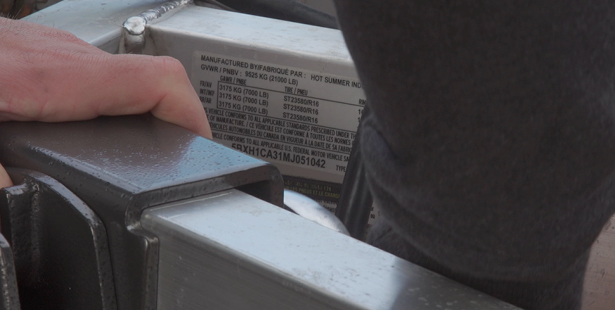
Hitch Types
Hitch Accessories
Depending on what your tow vehicle comes equipped with, you may need to purchase some aftermarket hitch accessories.
Ball Adapters
For an easy and affordable way to increase the size of your hitch ball, you can purchase a tow ball adapter. A quick change stainless steel clamshell tow ball adapter is easy to install and remove as needed.
Replacement Hitch Ball
Hitch balls are removable and replaceable. So if you find you need a hitch ball with a different rating, a different size, or if one you have has been damaged, you can swap them out.
Hitch Locks
When you have a valuable trailer and cargo, you will want to protect it from theft while on the road. Using a hitch lock can prevent trailer theft when you are parked overnight, at a rest stop, or any other time your trailer is left unattended.
Hitch Immobilizer
Installing a hitch immobilizer can eliminate excess movement between the ball mount and the receiver hitch, creating a smoother, safer ride. Too much mobility at this connection point could cause trailer sway.
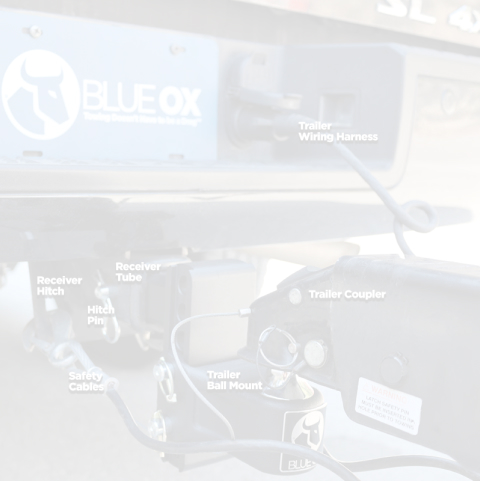
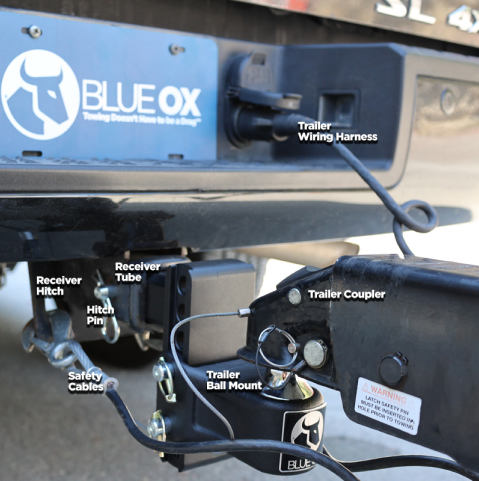

Ball Mounts
The ball mount gives you a secure connection between your tow vehicle and the trailer, so choosing the right one is crucial for safe towing. They come in 4 standard sizes, 1¼ ", 2", 2½ " and 3".
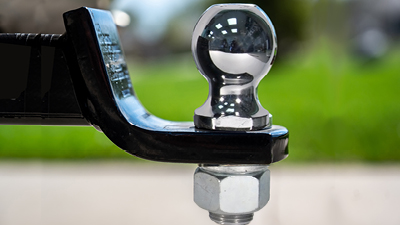
Standard Ball Mounts
Some new trucks have the option for a towing package, so your vehicle may come with a standard ball mount already installed at the factory. If this is the case, be sure to check the load capacity before hooking up your trailer. If you are buying a new vehicle, you may be able to request a higher capacity tow package if you already know your towing needs. If you are purchasing a used vehicle with a ball mount already installed, be sure to check the tow capacity. If it's lower than what you need, you can install an aftermarket ball mount.
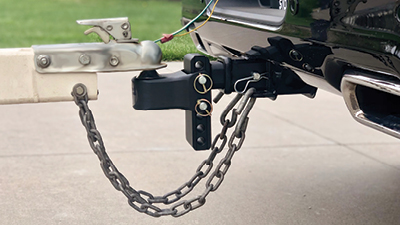
Adjustable Ball Mounts
Adjustable ball mounts are a great option if you have more than one trailer, each with a different coupler height or weight capacity. An adjustable ball mount allows you to choose the height you need and many can also be flipped to the drop or rise position for added versatility. Adjustable ball mount options from Blue Ox include:
Learn More >>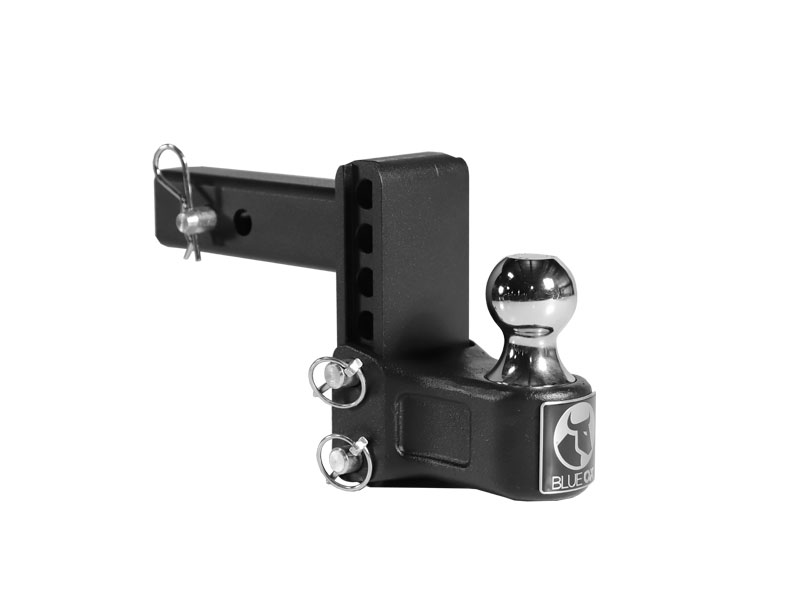
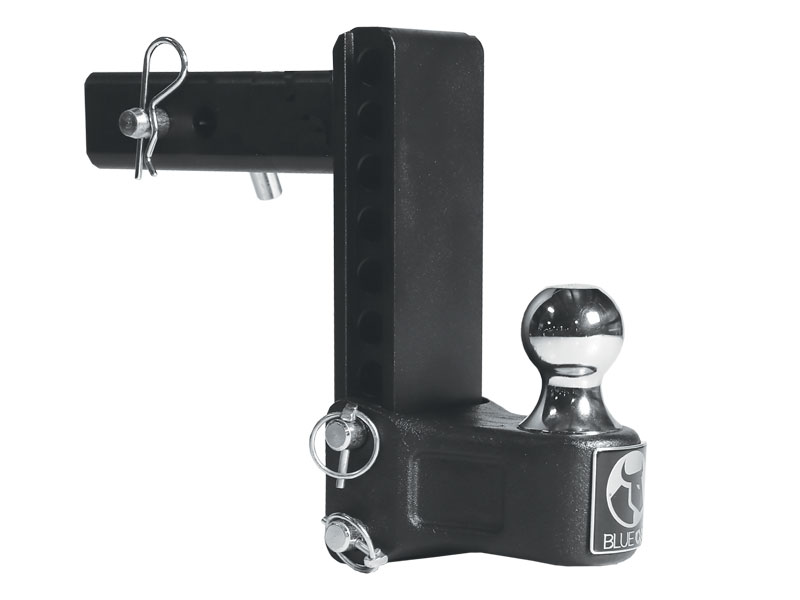
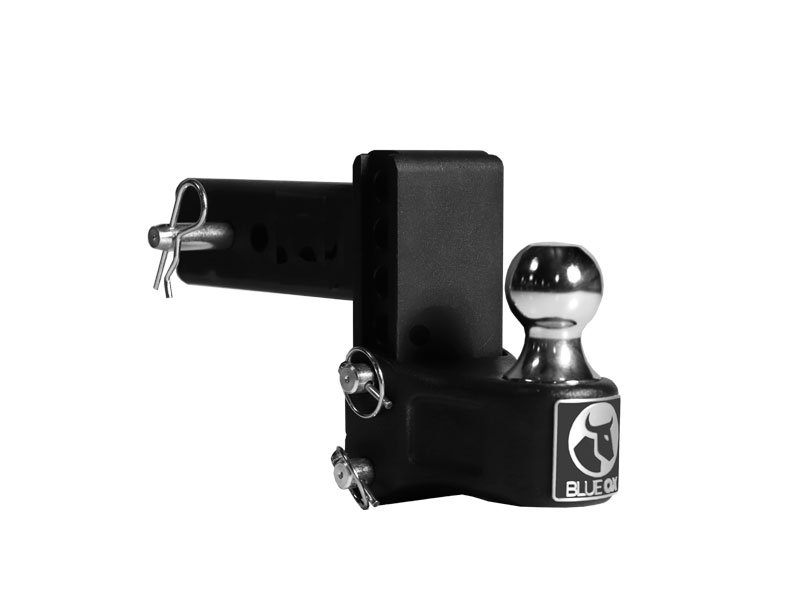
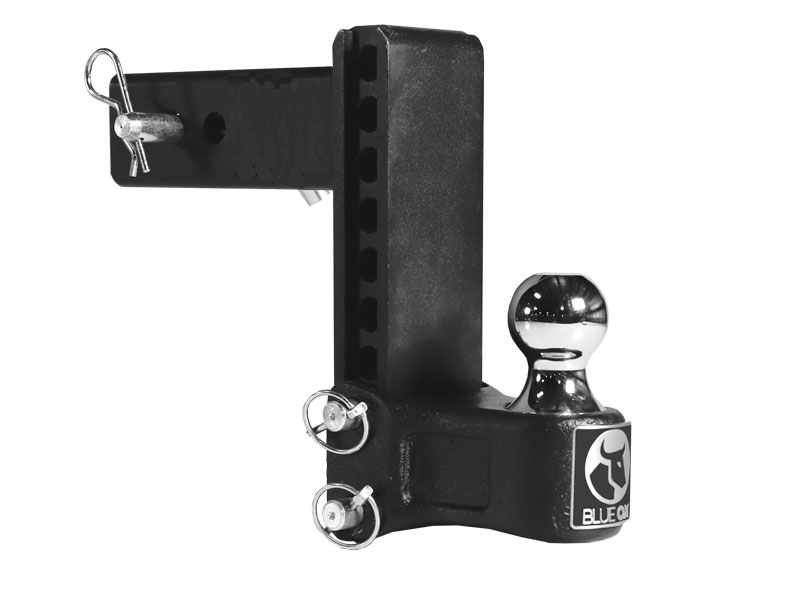
Trailer Tow Lights & Wiring
Running Lights
Running lights must be on at all times. This helps other vehicles on the road see you as they approach. Trailers will need yellow lights on the front and side markers so drivers can tell how long the trailer is from the side at night or when there is low visibility. Red lights must be installed on the rear end of the trailer so vehicles approaching from behind can see you.
Brake Lights and Turn Signals
Of course, your trailer will need red brake lights to indicate to other drivers when you are stopping or slowing down. Turn signal lights can be either red or yellow. The National Highway Traffic Safety Administration (NHTSA) requires all other light fixtures to be set at an asymmetrical height between 15 and 72 inches.
Trailer Wiring
In order for your trailer lights to work properly, you will need trailer connector wire to connect the running lights, brake lights, and turn signals. If you happen to have a tow vehicle that is not already equipped with a trailer wiring harness, you can install trailer wiring on your vehicle. Three common trailer wiring options are custom wiring, splice-in wiring, and replacement plugs and sockets.
